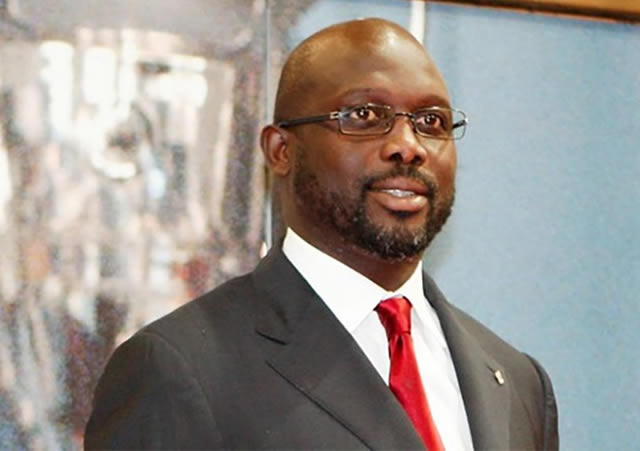George Weah, Liberia’s former president and a celebrated figure in the world of football, has embarked on a new mission: leading FIFA’s newly formed Players’ Voices Panel on Racism. This panel, composed of 16 high-profile football legends, represents a significant step in FIFA’s ongoing efforts to combat racism and discrimination within the sport. Weah, in a heartfelt letter to FIFA President Gianni Infantino, expressed his gratitude for the appointment and underscored the panel’s commitment to eradicating racism from football, both on and off the field. Having personally experienced racism during his illustrious career, Weah understands the profound and damaging impact it has not only on the sport itself but also on players, fans, and humanity as a whole. He emphasized the panel’s eagerness to commence this critical work, drawing on their collective experiences to develop effective solutions.
The composition of the Players’ Voices Panel reflects a diverse range of footballing backgrounds and nationalities, united by their shared commitment to tackling racism. Alongside Weah, the panel includes prominent figures such as Didier Drogba, Mercy Akide, Ronaldo de Lima, Clarence Seedorf, and Eniola Aluko, each bringing a unique perspective and wealth of experience to the table. This collective expertise will be instrumental in advising FIFA on policy development, raising awareness, and recommending concrete actions to combat racism at all levels of the game. The establishment of this panel underscores FIFA’s recognition of the need for a more robust and proactive approach to address the persistent issue of racism in football.
The formation of the Players’ Voices Panel comes in response to years of criticism directed at FIFA’s previous anti-racism initiatives. While campaigns like “Say No to Racism” generated visibility and promoted awareness, they were often perceived as lacking tangible enforcement mechanisms. Critics argued that the fines imposed on federations and clubs found complicit in racist incidents were insufficient deterrents, failing to adequately address the gravity of the offenses. The relatively small financial penalties often seemed more symbolic than punitive, leaving many feeling that FIFA’s actions did not match its rhetoric.
The panel’s mandate is to move beyond symbolic gestures and develop concrete strategies to address racism systematically. This includes advising FIFA on policy reforms, advocating for stricter sanctions against offenders, and promoting educational programs to foster inclusivity and respect within the football community. By leveraging the personal experiences and influence of its members, the panel aims to create a more impactful and lasting change within the sport. Their collective voice will be crucial in amplifying the message that racism has no place in football and in holding individuals and organizations accountable for their actions.
Gianni Infantino, FIFA’s president, has consistently called for tougher sanctions against perpetrators of racist acts, emphasizing that football should serve as a symbol of unity and inclusion. The Players’ Voices Panel, led by Weah, embodies this vision and represents a significant step towards realizing a more equitable and inclusive footballing landscape. The panel’s work is expected to set a new precedent for addressing racism in the sport, moving beyond symbolic gestures towards tangible actions that create real and lasting change. Their collective experience, influence, and unwavering commitment to fighting racism represent a powerful force for positive change within the global football community.
The establishment of the Players’ Voices Panel on Racism marks a pivotal moment in FIFA’s ongoing efforts to combat discrimination within the sport. By bringing together a diverse group of highly respected football figures, FIFA is demonstrating its commitment to addressing the issue in a more comprehensive and effective manner. Under the leadership of George Weah, the panel is poised to make a significant contribution to eradicating racism from football and fostering a more inclusive environment for players, fans, and all stakeholders involved in the beautiful game. The panel’s work will be closely watched by the global football community as it embarks on this crucial mission to create a sport that truly reflects the values of unity, respect, and equality.


